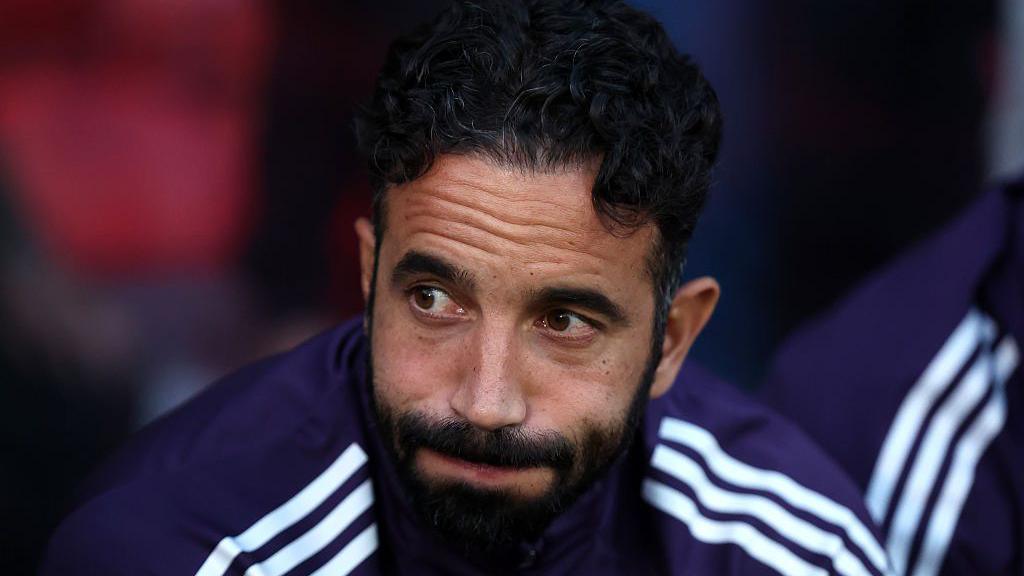The Grimsby Debacle: A New Low for Manchester United
The sight of Ruben Amorim crouched in the dugout during Manchester United’s penalty shootout collapse at Grimsby Town will haunt supporters. A Carabao Cup exit against fourth-tier opposition isn’t just a bad result—it’s an indictment of the club’s current trajectory under Amorim. For a club synonymous with dominance, this humiliation signals deeper systemic issues that extend far beyond one calamitous night at Blundell Park.
Amorim’s tenure increasingly mirrors United’s post-Ferguson identity crisis. Last season’s 15th-place Premier League finish—their worst in the competition’s era—already shattered expectations. Seventeen wins across 45 matches since his appointment, including seven in last season’s Europa League campaign, barely paper over the cracks. The £200 million summer spending spree on attackers Matheus Cunha, Benjamin Sesko, and penalty-shootout scapegoat Bryan Mbeumo has yet to deliver transformative results.
Amorim’s Tactical Conundrum: System Over Adaptation?
The Portuguese manager’s rigid 3-4-2-1 system—a hallmark of his success at Sporting CP—has become Manchester United’s tactical straitjacket. While this approach thrived in Portugal’s less-demanding league, it struggles against the Premier League’s relentless physicality and pace. Amorim’s aversion to traditional wingers has marginalized dynamic talents like Marcus Rashford and exiled Jadon Sancho and Antony, whose market values plummeted as they became tactical misfits.
Even promising academy graduates face stagnation. Kobbie Mainoo, a local prodigy once hailed as United’s midfield future, played 90 minutes at Grimsby after being benched for the season’s opening league games. His muted performance reflected a player caught between Amorim’s demand for Bruno Fernandes-style creativity and the squad’s disjointed chemistry. Similarly, Alejandro Garnacho’s exile following a disciplinary clash exemplifies Amorim’s hardline approach—one that risks alienating the very talent United must nurture.
The Leadership Vacuum: From Boardroom to Pitch
Minority owner Sir Jim Ratcliffe, CEO Omar Berrada, and technical director Jason Wilcox face scrutiny for betting heavily on Amorim. Their rejection of candidates like Thomas Frank and Graham Potter last October now reads as a costly gamble. The manager’s post-match comments after Grimsby—“I don’t understand what happened, but I should”—reveal a troubling disconnect. Compare this to Marco Silva’s lucid mid-game adjustments for Fulham, who outmaneuvered United days earlier by dominating midfield transitions.
Amorim’s visibly passive demeanor during the shootout—a stark contrast to his fiery touchline presence at Sporting—fuels doubts about his capacity to inspire a besieged squad. Players need leaders who project control in chaos, not managers who retreat when stakes peak.
Statistical Freefall: How Bad Has It Gotten Under Amorim?
Manchester United’s decline under Amorim isn’t subjective—it’s quantifiable:
– 24.7% Premier League win rate: Worse than any post-Ferguson manager, including David Moyes (50%)
– 42 points in 2024/25: Their lowest-ever Premier League tally
– 44 goals scored: A club record for attacking futility
– 1 win vs. English clubs in cup competitions (4 defeats)
These numbers paint a team regressing at an alarming pace. The fact that Genoa (Serie A) is the only top-five-league side with more first-half goalless games than United this season underscores their creative bankruptcy—a flaw Amorim’s £200 million attacking revamp was supposed to fix.
Path Forward: Reckoning or Reset?
Sunday’s match against Burnley looms as a pressure cooker. Victory is expected but uncertain—Burnley’s high press could exploit United’s sluggish build-up play. Amorim’s Friday press conference must address tactical flexibility, not deflect blame. If Mainoo, Garnacho, or emerging talents like Uruguayan winger Facundo Pellistri remain stifled by systemic dogma, United’s reset risks becoming a full-scale implosion.
The board, too, faces existential questions. Persisting with Amorim demands visible progress by January. Alternatively, cutting losses—however expensive—might spare further erosion of the club’s stature. Either path requires ruthless honesty: systems and managers must serve the club’s identity, not the reverse.
Manchester United’s crisis isn’t Amorim’s alone—it’s a litmus test for Ratcliffe’s regime. Restoring greatness requires more than nostalgia; it demands accountability at every level.
